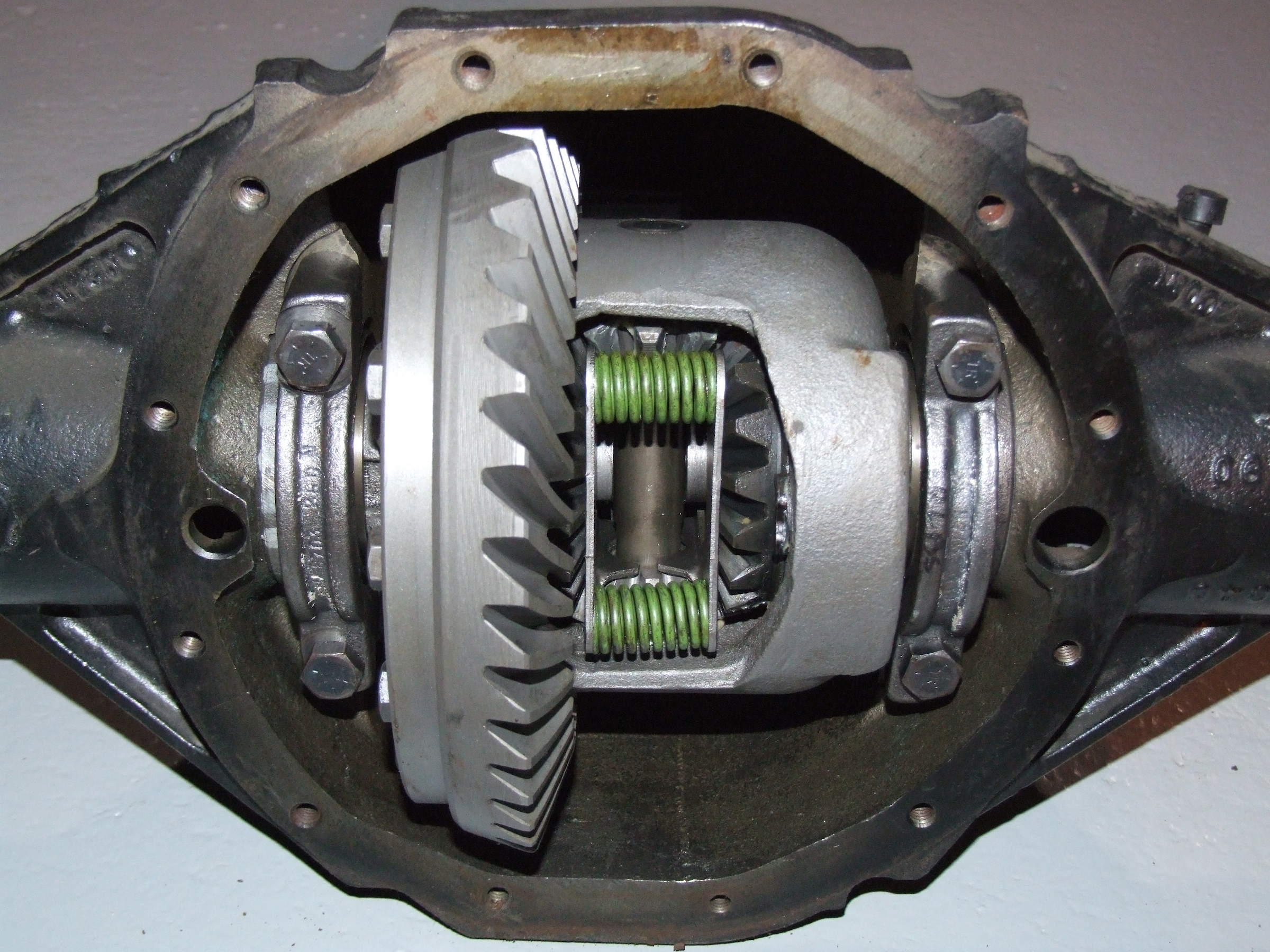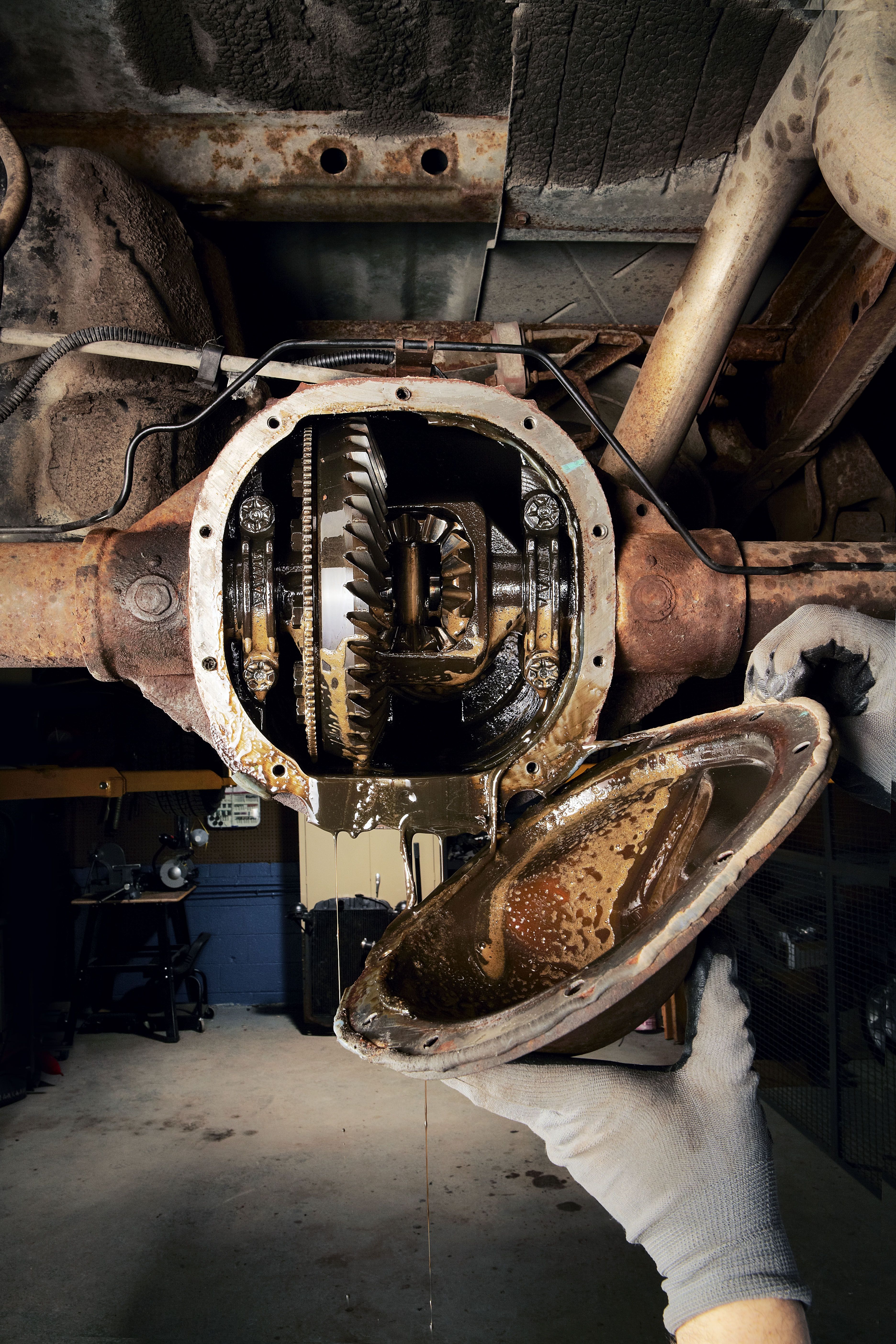Changing differential fluid is crucial as it ensures proper lubrication to prevent gears from grinding, leading to potential differential failure. This maintenance task significantly impacts the vehicle’s road grip, responsiveness, and overall smoothness during rotations and turns.
Neglecting differential fluid changes can result in increased heat generation and wear on the differential components, affecting the vehicle’s performance and longevity. Regularly changing the differential fluid is a simple yet effective way to maintain the optimal functioning of your vehicle’s drivetrain system.
It is a preventive measure that can save you from costly repairs down the road and ensure a smoother driving experience. Trusting this essential maintenance task will enhance your vehicle’s performance and durability in the long run.

Credit: blog.amsoil.com
The Role Of Differential Fluid
Changing differential fluid is crucial for optimal vehicle performance. Fresh fluid ensures proper lubrication, preventing gear grinding and potential differential failure. Regular changes enhance road grip, responsiveness, and smoother turns, making a noticeable difference in driving experience.
Protecting Gear Integrity
The differential is a crucial component in the car’s drivetrain, and it is responsible for enabling the wheels to turn at different speeds while still receiving power from the engine. The differential’s gears are subject to a lot of stress and friction, which can cause them to wear out and fail prematurely. This is where differential fluid comes in. The fluid forms a protective layer around the gears, reducing friction and preventing wear and tear. By changing the differential fluid regularly, you can help ensure the integrity of your car’s gears.Minimizing Friction And Wear
Friction is a significant enemy of any mechanical component, and the differential is no exception. The gears in the differential are subject to a lot of friction, which can cause them to wear out and fail over time. Differential fluid helps to minimize friction by creating a protective layer around the gears. The fluid also helps to cool the gears, preventing them from overheating and causing damage. By changing the differential fluid regularly, you can help minimize friction and wear in your car’s differential. In conclusion, changing the differential fluid can make a significant difference in the performance and longevity of your car’s differential. By protecting the integrity of the gears and minimizing friction and wear, differential fluid helps to ensure that your car’s differential operates smoothly and efficiently. So if you want to keep your car running smoothly and avoid costly repairs, be sure to change the differential fluid regularly.
Credit: www.youtube.com
Symptoms Of Low Or Old Differential Fluid
Regularly changing the differential fluid is crucial for the smooth functioning of your vehicle. Failing to do so can lead to various issues that can affect your driving experience and the overall performance of your car. Here are some symptoms that indicate low or old differential fluid:
Unusual Noises And Whines
One of the most common signs of low or old differential fluid is the presence of unusual noises and whining sounds coming from the rear or front of your vehicle. These sounds can indicate a lack of proper lubrication in the differential system, leading to increased friction and wear on the gears and bearings. Ignoring these noises can result in costly repairs and potential safety hazards while driving.
Gear Grinding And Tire Spinning
Another clear indication of low or old differential fluid is the occurrence of gear grinding and tire spinning. This can be a result of the differential not receiving adequate lubrication, causing excessive friction and wear on the gears and other components. As a consequence, you may experience difficulties in shifting gears smoothly and notice your tires spinning unexpectedly, especially when making turns or driving on uneven surfaces.
Consequences Of Neglecting Differential Fluid Change
When it comes to vehicle maintenance, the differential fluid change is often neglected, leading to potentially serious consequences. Neglecting the differential fluid change can result in increased risk of differential failure and loss of vehicle responsiveness.
Increased Risk Of Differential Failure
Failure to change the differential fluid at regular intervals can lead to increased wear and tear on the internal components of the differential. Over time, this can result in premature failure of the differential, leading to costly repairs and potential safety hazards on the road.
Loss Of Vehicle Responsiveness
Neglecting the differential fluid change can result in a loss of vehicle responsiveness. Old and contaminated differential fluid can lead to increased friction and heat within the differential, affecting the vehicle’s ability to respond quickly and effectively to driving conditions. This can result in poor road grip, reduced maneuverability, and a less smooth driving experience.
Improvements From Fresh Differential Fluid
When it comes to maintaining your vehicle’s differential, changing the differential fluid can make a significant difference in its performance. Fresh differential fluid contributes to various improvements in the vehicle’s drivability and safety. Let’s explore the enhancements that can be experienced from using fresh differential fluid.
Enhanced Road Grip
Fresh differential fluid plays a crucial role in improving the road grip of your vehicle. The clean and properly lubricated differential components ensure that the wheels maintain better traction, especially when navigating challenging road conditions or uneven terrains. This enhanced road grip contributes to a more stable and secure driving experience.
Smoother Rotations And Turns
One of the noticeable benefits of fresh differential fluid is the smoother rotations and turns that it facilitates. With clean and well-lubricated differential components, the vehicle can make turns more seamlessly and experience smoother rotations, enhancing the overall driving experience and maneuverability of the vehicle.
How Differential Fluid Change Affects Performance
Changing the differential fluid can have a significant impact on your vehicle’s performance and long-term health. It affects various aspects of your car’s functionality, from immediate noticeable differences to long-term benefits.
Immediate Noticeable Differences
When you change the differential fluid, you may immediately notice:
- Improved Road Grip: The fresh fluid enhances traction and stability, leading to better road grip.
- Enhanced Responsiveness: Your vehicle becomes more responsive, especially during accelerations and decelerations.
- Smoother Rotations and Turns: With the new fluid, rotations and turns become smoother, contributing to a more enjoyable driving experience.
Long-term Vehicle Health Benefits
Over the long term, changing the differential fluid offers several benefits for your vehicle:
- Extended Component Lifespan: Fresh fluid helps lubricate the differential components, reducing wear and prolonging the lifespan of crucial parts.
- Prevention of Costly Repairs: Regular fluid changes can prevent expensive differential and drivetrain repairs, saving you money in the long run.
- Optimized Performance: By maintaining proper lubrication, the differential operates more efficiently, leading to optimized overall performance of the vehicle.

Credit: www.popularmechanics.com
Differential Fluid Change Frequency
When it comes to maintaining your vehicle’s differential, one of the most crucial aspects is the frequency at which you should change the differential fluid. Proper maintenance of the differential fluid can significantly impact the performance and longevity of your vehicle. Let’s delve into the differential fluid change frequency and understand why it’s essential to adhere to the manufacturer’s recommendations.
Manufacturer’s Recommendations
Manufacturers typically provide specific guidelines regarding the frequency of differential fluid changes. It’s important to consult your vehicle’s manual or reach out to the manufacturer for precise information. Generally, the recommended frequency ranges from 30,000 to 50,000 miles, but this can vary based on the vehicle make and model.
Signs That It’s Time For A Change
There are certain indicators that suggest the differential fluid may need to be changed. Keeping an eye out for these signs can help prevent potential damage to the differential and ensure optimal performance. Some common signs include unusual tire spinning, gears grinding, whining sounds, and strange damages on the sidewall of the tires. Additionally, whirring, whining, or howling noises may indicate a need for a differential fluid change.
Diy Differential Fluid Change
Are you considering a DIY differential fluid change? It’s a simple yet crucial maintenance task that can significantly impact your vehicle’s performance and longevity. Changing your differential fluid at regular intervals can enhance road grip, responsiveness, and overall driving experience. Let’s explore the essential steps for draining and replacing the fluid, as well as choosing the right fluid for your vehicle.
Steps For Draining And Replacing Fluid
When performing a DIY differential fluid change, it’s essential to follow these steps:
- Raise the vehicle using a jack and secure it with jack stands.
- Locate the differential drain plug and carefully loosen it to allow the old fluid to drain into a suitable container.
- After the old fluid has completely drained, remove the differential cover to access the remaining fluid.
- Clean the differential housing and cover thoroughly to remove any debris or old gasket material.
- Install a new gasket and reattach the differential cover securely.
- Refill the differential with the appropriate amount of new fluid, as specified in your vehicle’s manual.
- Lower the vehicle and ensure the new fluid is at the correct level.
Choosing The Right Fluid For Your Vehicle
It’s crucial to select the correct differential fluid for your specific vehicle to ensure optimal performance and protection. Refer to your vehicle’s manual or consult with a professional to determine the recommended fluid type, viscosity, and capacity. Additionally, consider any specific requirements based on your driving habits, climate, and vehicle usage.
Professional Differential Service
Ensuring your differential fluid is changed regularly makes a significant difference. Fresh fluid provides lubrication, preventing gear grinding and heat buildup, leading to smoother vehicle performance and longevity. Regular differential service enhances road grip and responsiveness, crucial for optimal driving experience.
Advantages Of Expert Maintenance
When it comes to maintaining your vehicle, it’s important to have a professional differential service done on a regular basis. The differential is responsible for transferring power from the engine to the wheels and without proper maintenance, it can lead to costly repairs. By having an expert perform a differential service, you can expect the following benefits:- Better road grip
- Improved vehicle responsiveness
- Smarter rotations and turns
Cost Vs. Long-term Savings
While getting a professional differential service may seem like an added cost, it’s important to consider the long-term savings. Neglecting to change your differential fluid can lead to major repairs such as a damaged differential or axle. These repairs can be costly and time-consuming, whereas a regular differential service is a small cost that can prevent major issues down the road. In conclusion, changing differential fluid does make a difference and it’s important to have a professional perform a regular differential service. By doing so, you can expect better performance on the road, prevent costly repairs, and save money in the long run.Frequently Asked Questions
Is It Worth Changing Differential Fluid?
Changing differential fluid is worth it for better road grip, responsiveness, and smoother rotations and turns. Regular maintenance is key.
What Happens If You Never Change Differential Fluid?
Neglecting differential fluid change can lead to gear grinding, overheating, and eventual differential failure.
How Do I Know If My Differential Fluid Needs To Be Changed?
To determine if your differential fluid needs changing, watch out for signs like tire spinning, grinding gears, whining sounds, and tire sidewall damage.
What Are The Symptoms Of Low Differential Fluid?
Symptoms of low differential fluid include tire spinning, gears grinding, whining noises, and unusual tire damages.
Conclusion
Changing your differential fluid can significantly improve your vehicle’s performance and longevity. It ensures better road grip, responsiveness, and smoother rotations and turns. Neglecting this maintenance can lead to gear grinding and potential differential failure. Regular fluid changes are essential for optimal vehicle functioning.
